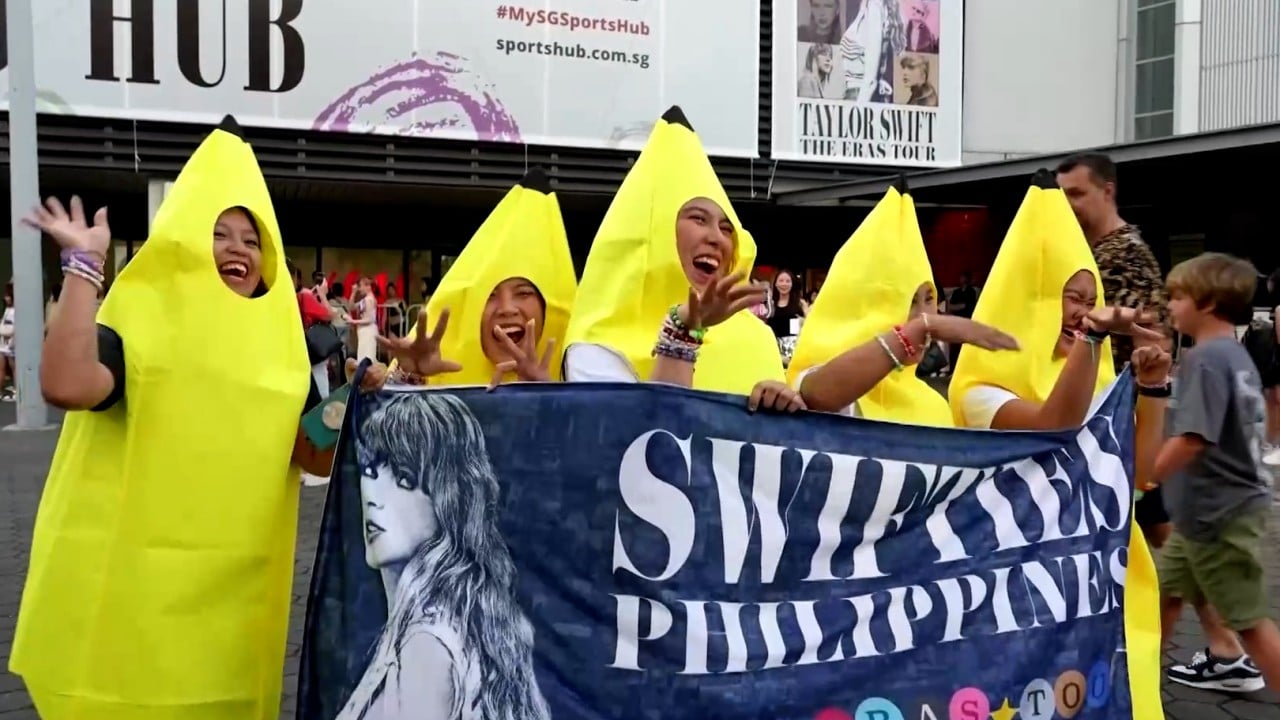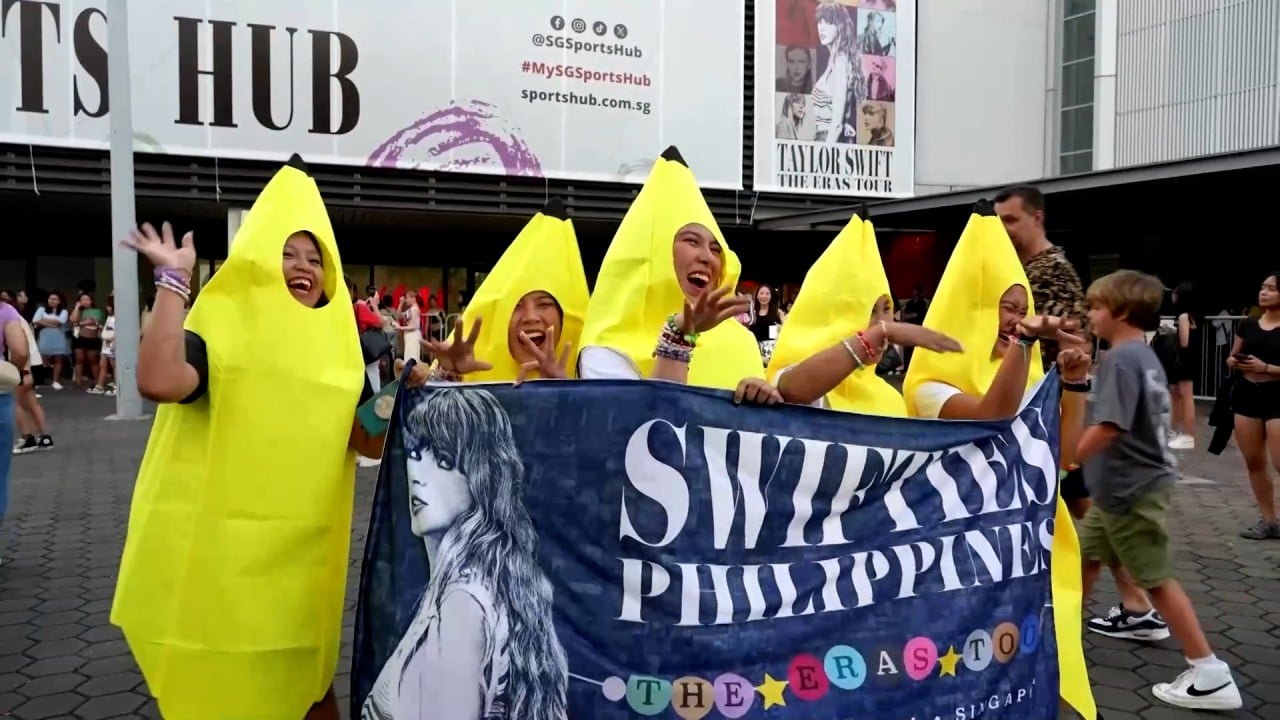Soaked by pouring rain and listening to singalongs from fans, Taiwanese Mandopop icon Jay Chou brought the 400th concert of his career to an end in Changsha in central China’s Hunan province at the start of June.
And having kicked off the four-day stay in the city on May 30 as part of his Carnival World Tour, Chou had created a musical phenomenon.
On top of the initial ticket prices to see the “King of Mandopop”, the concerts sparked local consumption of over 500 million yuan (US$69 million), following similar spending surges ignited by his shows in Fuzhou and Hangzhou earlier this year, according to local media.
With China’s key retail sales growth lagging, live music shows have surprisingly thrived since coronavirus restrictions were lifted, spurring enthusiasm by local governments, who are actively supporting concerts and music festivals.
“Chinese consumers have been shifted to more conservative amid the economic downturn,” said Raymond Yeung, chief economist for Greater China at ANZ.
“While the desire to consume persists, consumers are adopting a more cautious approach. Consequently, affordable mass entertainment options like music concerts have enhanced their appeal due to their accessibility.”
According to the China Association of Performing Arts, the average spending on tickets for large scale music concerts and festivals – those with audiences over 2,000 – was 567 yuan (US$78) per person in 2023.
The explosive growth is also closely related to the pent-up demand from the past three years of the pandemic, which affected artists and consumers, according to Cai Yubin, an associate account manager at consumer insights firm Kantar Worldpanel.
And in the first half of 2024, ticket sales for large scale concerts doubled year-on-year, while attendees increased by more than 60 per cent, according to the China Association of Performing Arts.
This follows a boom in 2023, when the number of large-scale concerts reached 5,600, surpassing the total number of live music shows in 2022 and generating over 20 billion yuan in revenue, which represented a fourfold increase compared to 2019.
And with their revenues falling amid the ongoing property crisis, local governments in China are actively ramping up efforts to attract music concerts.
Earlier this month, advisers to the Shanghai government called for the loosening of restrictions on international performers, suggesting the government should invite more internationally influential artists that are popular among younger generations to hold concerts in the financial hub, likening superstars like Taylor Swift to “walking GDP”.
And in May, Taiyuan, the capital city of the central Shanxi province, released a stimulus package to boost its music concert scene.
The measures included subsiding concert organisers and offering free attraction tickets to visitors coming to the city for a concert.
Supportive policies for music concerts have also been announced by the provincial governments of Shandong, Fujian and Hainan.
Beyond the supportive policies and funding, authorities in Jiangsu province also addressed consumer rights concerns during a regulatory talk earlier this month.
They criticised ticket platforms and concert organisers for unfair practices, including high refund charges and misleading marketing.
But despite the roaring live concert industry and its role as spending catalyst, retail sales growth in China has remained tepid, rising by just 2 per cent in June year on year, compared with 3.7 per cent growth seen in May, marking the slowest pace since China lifted its coronavirus restrictions at the end of 2022.
Retail sales have languished in single digits since June last year, when the growth rate dropped sharply from 12.7 per cent in May to 3.1 per cent.
Yeung also expressed concern about whether the music concert economy would boost domestic consumption in the long term as the trend of job lay-offs and wage cuts is still lingering.
“The ongoing labour market pressures continue to limit disposable income. This could lead to a broader consumption downgrade, potentially impacting even discretionary spending on entertainment like music concerts,” added Yeung.
Now I realise spending that much on a concert just isn’t worth it
And after one year of so-called revenge spending after various coronavirus restrictions were lifted at the start of last year, some concert goers have also become more value conscious.
When the travel restrictions were lifted, Cici Mo eagerly attended every concert of her favourite boy band WayV in China.
Being a university student with no income, she had to cut back on food and clothes to buy front-row tickets – each costing around 3,000 yuan (US$412.5).
But now, she has started to question the value of such extravagance for a fleeting experience.
Earlier this year, Mo tried to snap up a 580 yuan ticket for Phoenix Legend – a famed Chinese music duo – at their Beijing concert.
But after failing to obtain a ticket online and having seen the exorbitant prices charged by scalpers, she eventually opted out.
“It would cost me 1,000 yuan more to buy scalper tickets. Now I realise spending that much on a concert just isn’t worth it,” said Mo.
“The sense of happiness and satisfaction from the concert only lasts a short time.”



